MLA Citation Generator
Quickly create well-formatted MLA citations with a citation generator built by writing experts and powered by AI.
Citation Information
MLA Full Citation Preview
Add your citation information, and we'll format it here.

A Better Way to Work
Feel confident you've done your best work with the help of Grammarly. Benefit from:
Grammarly offers comprehensive AI-powered writing assistance to help you refine your ideas, improve your writing, check for plagiarism, and more.
Your AI Writing Partner for Every Stage
of the Writing Process
Brainstorm, outline, and refine ideas with generative AI, cite sources in a few clicks,
and get comprehensive suggestions to improve your writing.
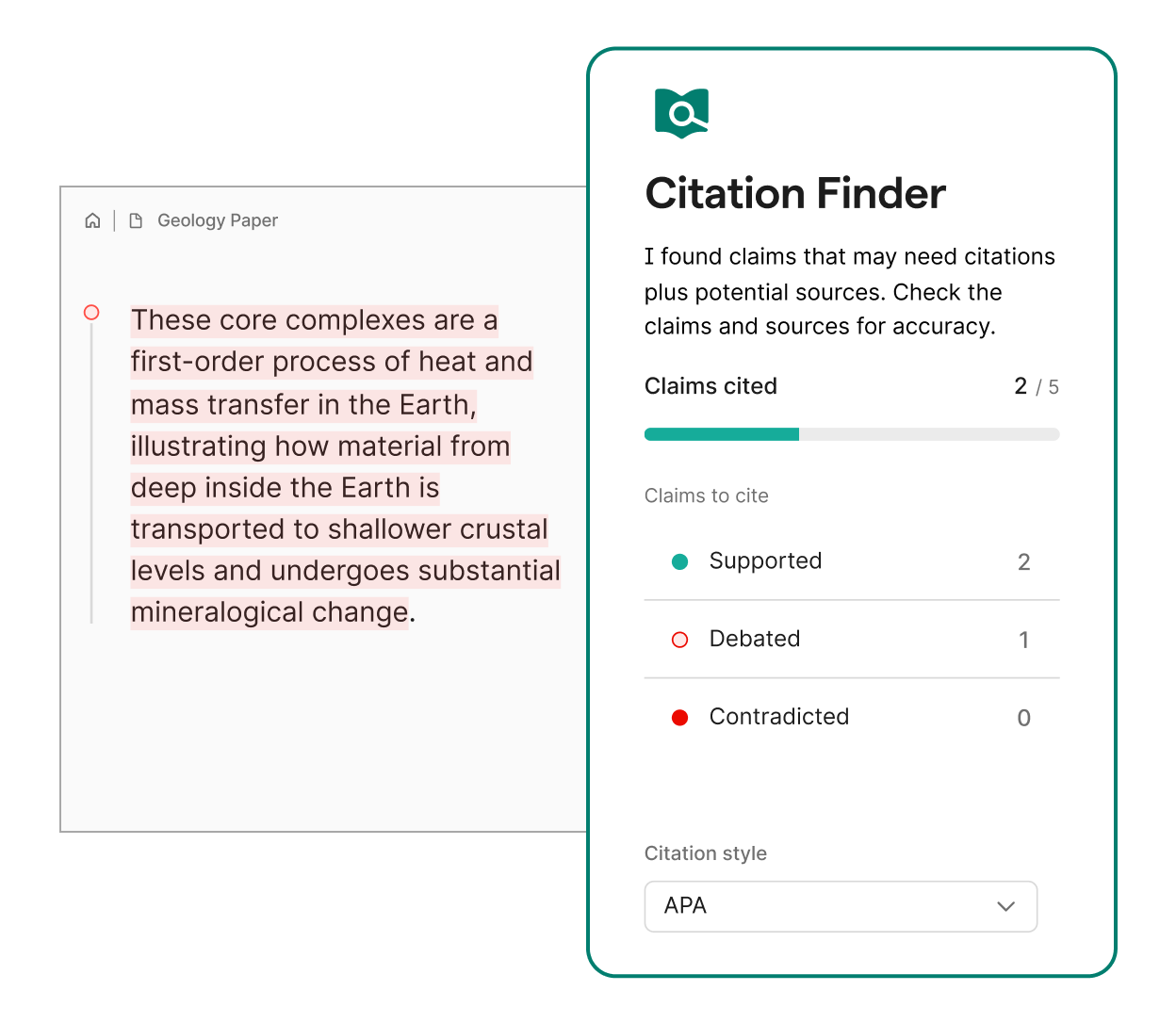
Turn claims into supported arguments
Citation Finder is an AI agent that acts as your research assistant. It reviews your work as you write, flags statements that need support and pulls in trusted sources. Plus it auto-generates and inserts your citations so you always submit solid work.
Get citations within seconds
Instantly get pre-made in-text and full APA citations with Grammarly’s auto-citations tool, which works within top source sites like Wikipedia, Frontiers, and ScienceDirect.
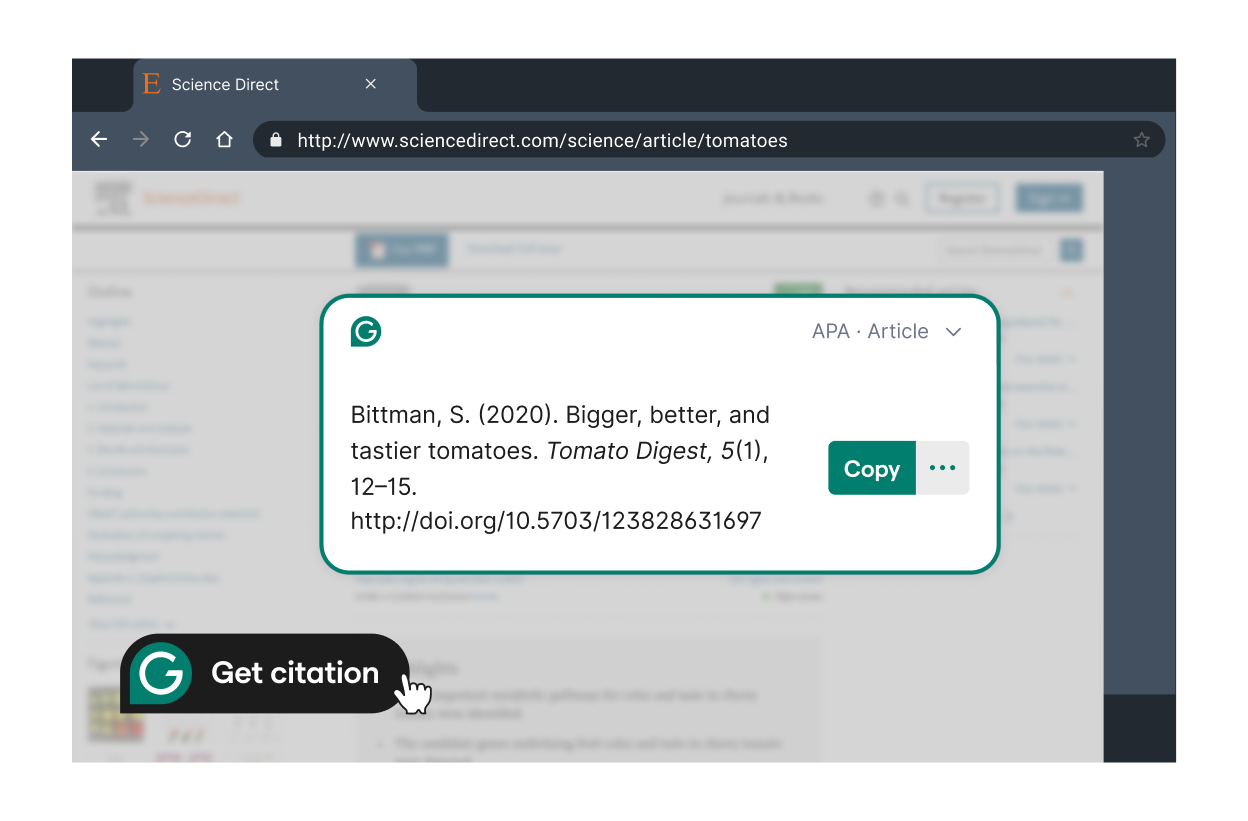
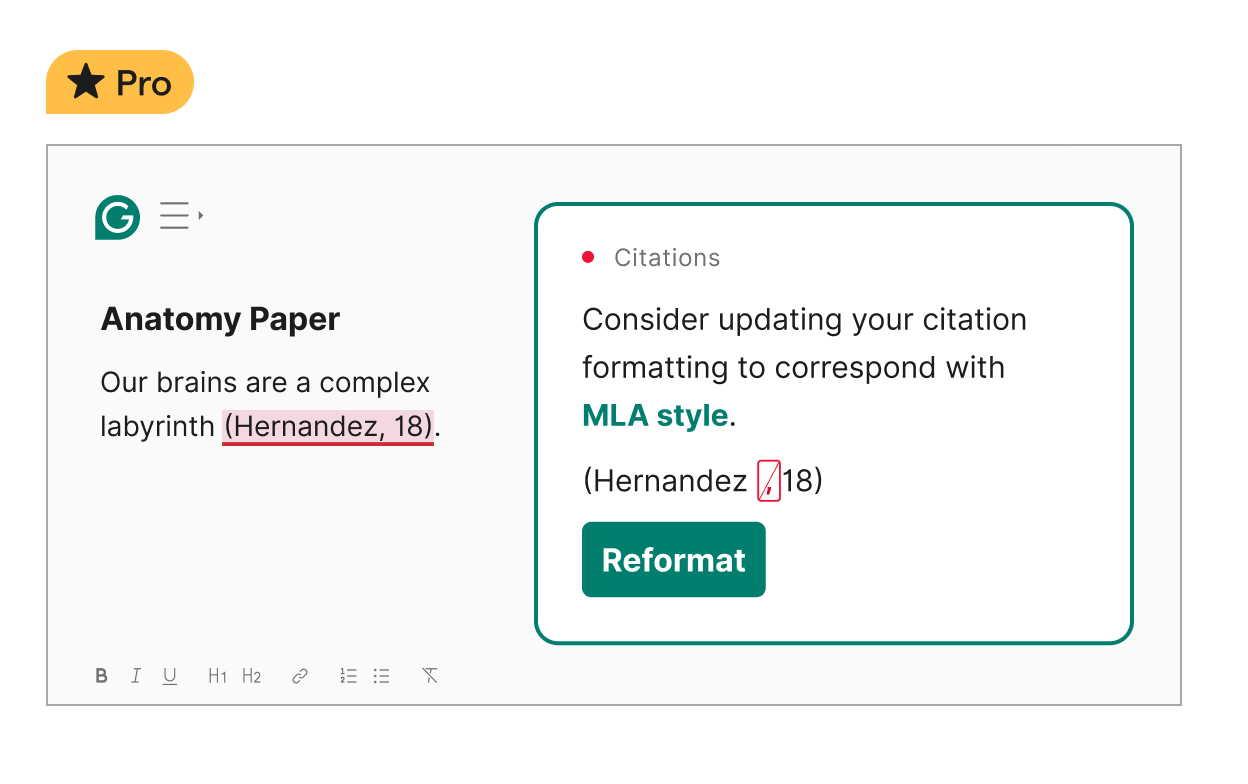
Never lose points over
citation formatting
Perfect your citation's periods, parentheses, and more with the help of Grammarly's citation style formatting, which always stays up to date with the latest versions of APA, MLA, and Chicago style guides.
Keep your writing original
Avoid accidental plagiarism. Grammarly identifies passages that may need references while you write and shows you source information.
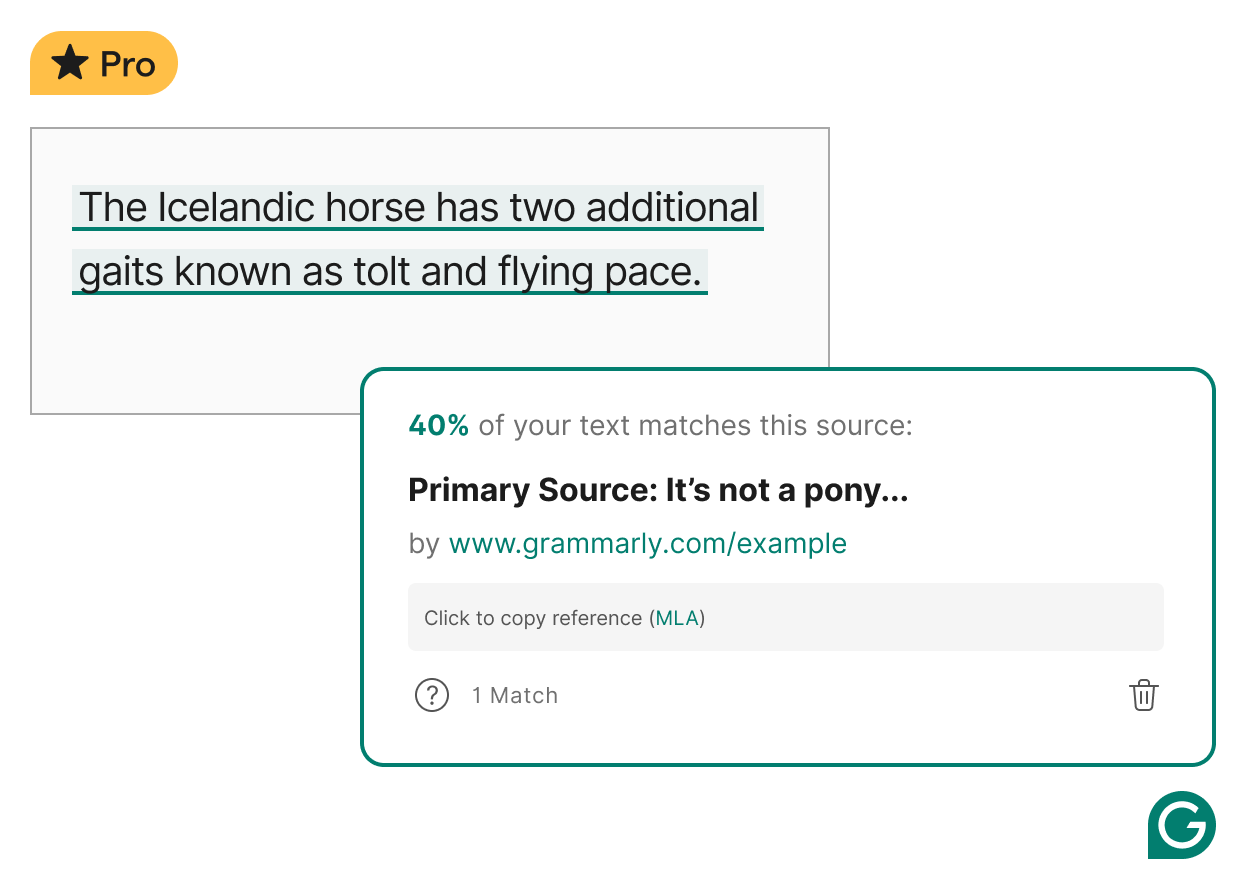
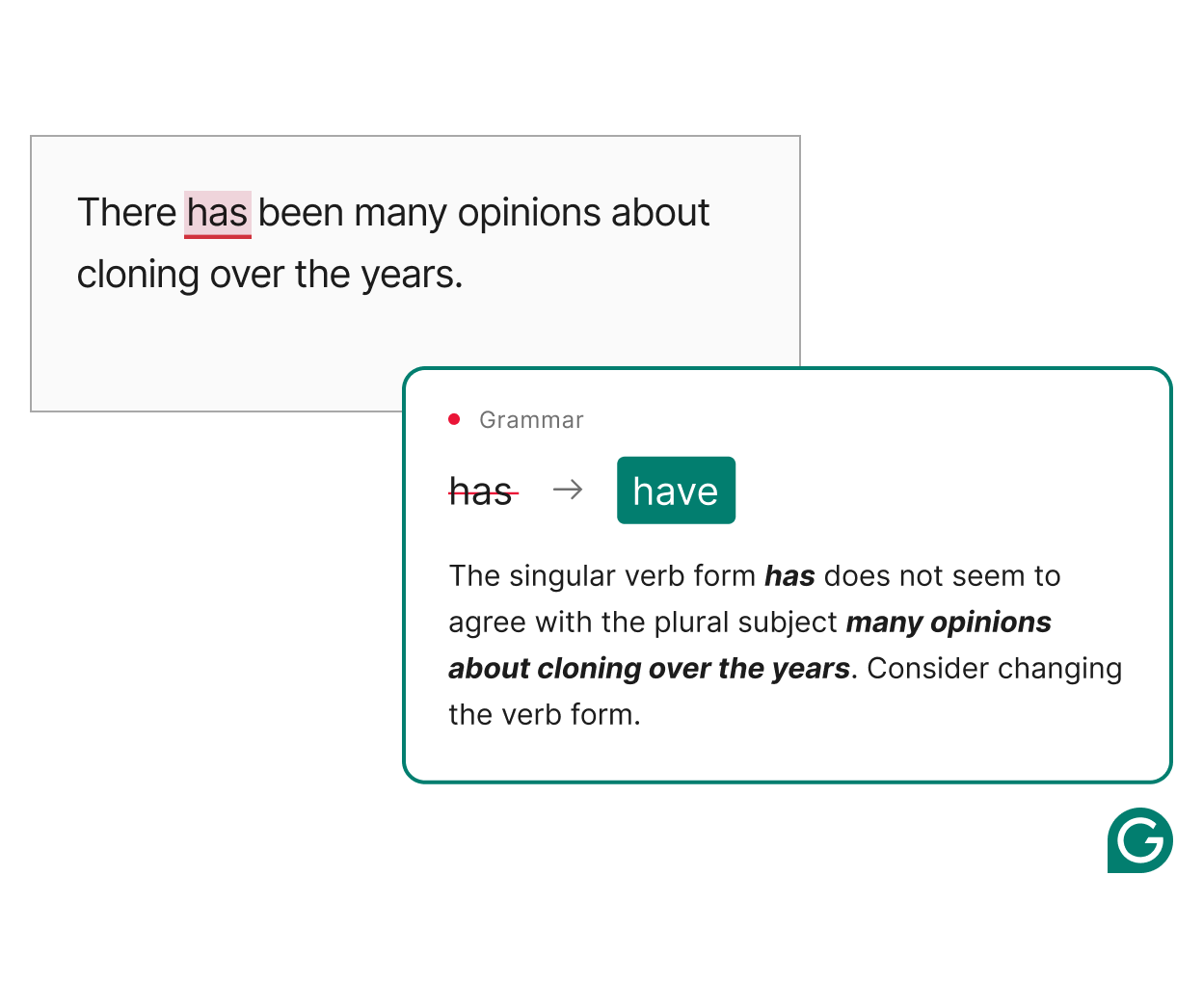
Proofread with ease
With just a few clicks, clean up typos, subtle grammatical mistakes, and misplaced punctuation you might otherwise miss.
A user using Docs to access Grammarly agents
Docs: Your thinking space and writing space, finally in one place
Docs is your dedicated writing surface for deep work. It’s a powerful AI document editor that supports your process from first thought to final draft, turning ideas into polished writing with real-time support at every step.
Learn more about docs
Learn more about docs
Trusted by students and educators at over 3,000 institutions, including:


































































































“Grammarly makes citations so easy and delightful. While working on my final dissertation, I saw a Grammarly pop-up on a research article just when I needed it. In one click, I got my citation. That's what you call the right feature at the right time!”

Sreekiran A.R.
M.Sc. Artificial Intelligence and Machine Learning at University of Birmingham
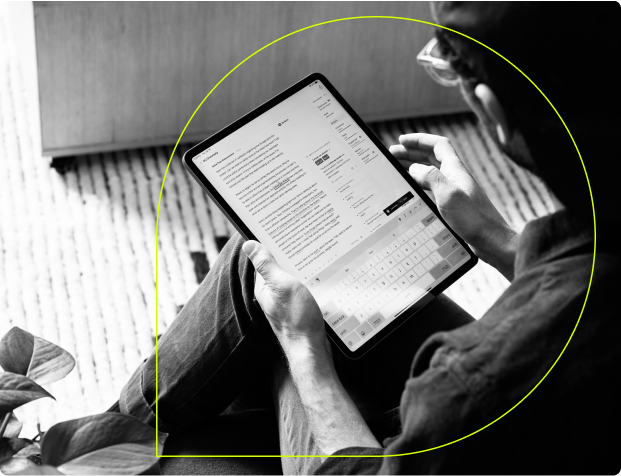
A Short Guide to MLA Format Citations
The MLA citation format is typically used by those in liberal arts and humanities fields. Learn what MLA style is, when to use MLA-format citations, and how to create in-text and full MLA citations for all sorts of sources below.
How to write a full MLA citation
Full MLA citations should be listed on your paper's works cited page, and their exact content varies depending on the source you're citing. A full MLA YouTube video citation will look a bit different from an MLA newspaper citation, which won’t be exactly the same as an MLA photo citation, and so forth. That said, the MLA citations on your works cited page will all follow the same general MLA format. Here’s how that format looks:

The pieces of information you include depend on your source. For example, an MLA citation for a book might look like this:


How to write an in-text MLA citation
Like full citations, in-text MLA citations vary depending on the source. However, they’re a bit simpler and include less information. To create an in-text MLA citation, you typically include the author’s last name and the page number of the work being cited in parentheses right after the reference. The citation’s contents will change a little depending on factors like multiple authors and if a source is audiovisual or online, but they'll all follow the same general format. Here’s how MLA in-text citations would look for the full citation examples from above:


To learn more about how to cite MLA for specific sources, check out the links in the section below.
MLA Format Citations vs. Other Formats
You may be asked to use Chicago-style or APA-format citations instead of MLA-format citations on some assignments. APA format is used for the sciences and education, and Chicago style is typically used for history, business, and fine arts.
Unlike APA, it’s not always clear when you should use Chicago versus MLA. Chicago is typically the go-to style guide for history, business, and fine arts papers, but Chicago or MLA may be used for other humanities subjects, like literature and theater. Generally, MLA is the preferred style guide for humanities work at the undergraduate level, whereas Chicago is more common at the graduate level.
Though APA and Chicago share similarities with MLA, they have a slightly different approach to things like author names, dates, and title capitalization. This can be a bit confusing, but don’t worry! The free citation generator at the top of this page is here to save the day. Use it to quickly and accurately create citations in MLA, Chicago, or APA.
To learn more about how to do MLA citations for specific sources, check out the links in the section below.
Unlike APA, it’s not always clear when you should use Chicago versus MLA. Chicago is typically the go-to style guide for history, business, and fine arts papers, but Chicago or MLA may be used for other humanities subjects, like literature and theater. Generally, MLA is the preferred style guide for humanities work at the undergraduate level, whereas Chicago is more common at the graduate level.
Though APA and Chicago share similarities with MLA, they have a slightly different approach to things like author names, dates, and title capitalization. This can be a bit confusing, but don’t worry! The free citation generator at the top of this page is here to save the day. Use it to quickly and accurately create citations in MLA, Chicago, or APA.
To learn more about how to do MLA citations for specific sources, check out the links in the section below.
How to Cite (Practically)
Anything in MLA Style
How do in-text citations work? Can you cite Wikipedia? What do you do if the scientific article has 25 authors, or the photo was published anonymously? Is your references page formatted appropriately? Fear no more—these articles guide you through common (and uncommon!) source variations so you can cite accurately.
Improve Your Writing and
Boost Your Grades
Join students from over 3,000 institutions worldwide to see why 94% of them say Grammarly helped improve their grades.